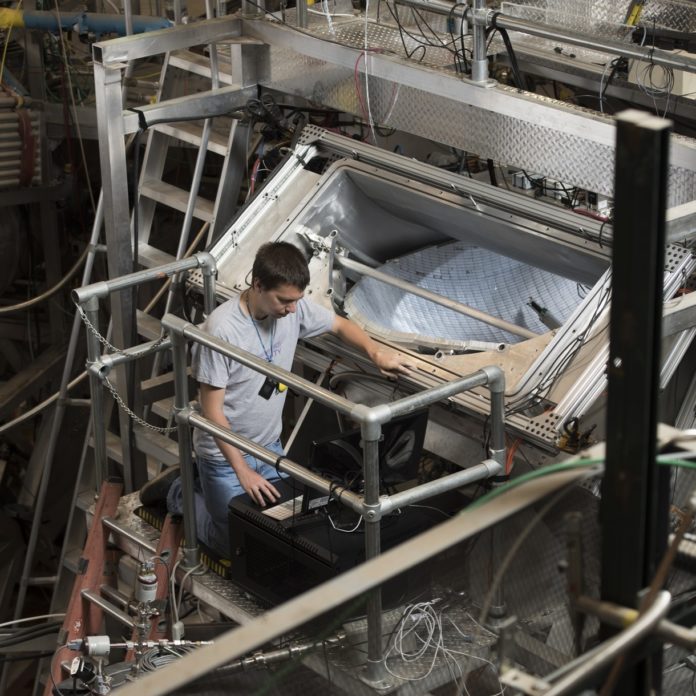COOKEVILLE – Solving the mysteries of physics to help understand the laws that explain the origin and evolution of the universe may sound intimidating, but for Adam Holley, an assistant professor of physics at Tennessee Tech, it’s an exciting adventure and an engaging research opportunity for his students.
Holley and his students are busting neutrons from the nuclei of atoms and looking at the decay of those neutrons, exploring ways to make measurements of the decay rate more precise. Their work is highlighted in a study published recently in the journal Science.
The study was carried out by the UCNtau collaboration and involves researchers at Los Alamos National Lab and 11 other institutions including Tennessee Tech, with each collaborator contributing to different aspects of the project.
To measure the lifetime of these neutrons – subatomic particles with no charge – with a high level of precision, the team used a “trap” made of magnetic fields and gravity to capture the neutrons, eliminating any interference from physical material of other neutron traps. Because the storage time in this magnetic trap is about three weeks, much longer than previous traps, researchers can get a closer look at what is happening inside.
Holley and his students travel regularly to Los Alamos to collect experimental data. At Tech, they build apparatus which they use to study the trap, perform simulations that help fine-tune the experiment, and contribute to the analysis of the results.
In 2016, Holley received a prestigious National Science Foundation CAREER Award, which has supported his work with undergraduate students on research projects such as this.
“For undergraduates, a high-quality research experience provides an orientation that is invaluable for launching a technical career,” Holley said. “The more wide-ranging the experience, the better. The recent UCNtau result is an extraordinary accomplishment that was made possible by a very talented group of researchers and technicians working on a broad set of problems. It is exciting to see my students discover a piece of this effort that excites them and then work beside and learn from such talented people.”
Holley’s CAREER Award provides funding for such research initiatives through 2021.
Read the science publication at https://www.sciencedaily.com/releases/2018/05/180510145945.htm.









